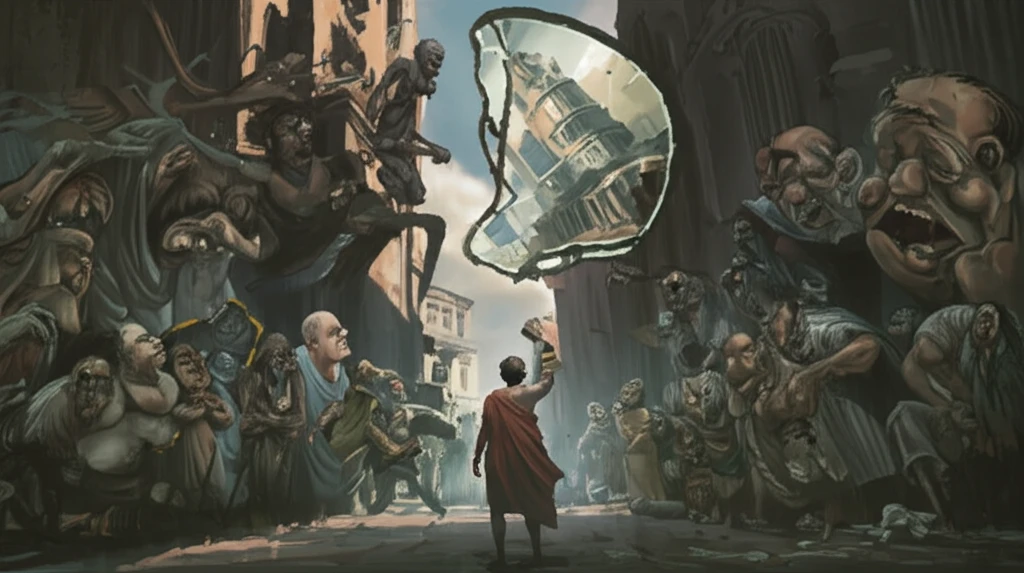
Juvenal: Unmasking Roman Society's Dark Side - A Modern Guide to Ancient Satire
"Explore the timeless relevance of Juvenal's biting critiques, from political corruption to social hypocrisy, and discover why his words still resonate today."
Imagine a world where political corruption, social hypocrisy, and moral decay run rampant. Now, picture a writer brave enough to expose it all with biting wit and savage irony. This was the Rome of Juvenal, a satirist whose words still echo through the centuries. Juvenal, also known as Decimus Iunius Iuvenalis, lived in a Rome rife with excess and inequality during the late 1st and early 2nd centuries CE. His Satires offer a dark, often humorous, glimpse into the lives of those who inhabited this world.
Juvenal's work provides a window into the complex and often contradictory values of Roman society. While his satire is deeply rooted in his time, the themes he explores—the abuse of power, the emptiness of materialism, and the struggle for personal integrity—remain strikingly relevant. For today's audience, grappling with similar issues, Juvenal's writings offer both historical insight and a provocative mirror reflecting our own society.
This article seeks to unpack Juvenal's legacy, exploring the key themes and stylistic elements that made him such a compelling figure. We'll examine how his work was received in antiquity and how it continues to be interpreted and reinterpreted today. So, let's journey back to ancient Rome and discover why Juvenal's satire continues to resonate with modern readers.
What Made Juvenal's Satire So Powerful?

Juvenal's Satires are characterized by their raw, unflinching portrayal of Roman life. Unlike some of his predecessors, who favored a more subtle approach, Juvenal went straight for the jugular, using vivid imagery and scathing language to expose the moral failings of his contemporaries. This directness, combined with his mastery of poetic form, made his satire both effective and memorable. Juvenal's writing, penned in hexameter verse, showcased the follies and vices prevalent during the late Flavian and early Hadrianic periods. His work wasn't just a chronicle of events; it was an outright assault on moral depravity and societal decay.
- Targets of Juvenal's Satire:
- Corrupt politicians who abused their power for personal gain.
- Social climbers obsessed with status and wealth.
- Degenerate aristocrats indulging in extravagance and vice.
- Foreign immigrants, who were often the subject of xenophobic anxieties.
- Women, who Juvenal often presented with misogynistic undertones.
The Enduring Relevance of Juvenal's Satire
Juvenal's work has continued to be read and studied for centuries, not only for its historical value but also for its artistic merit. His vivid language, memorable characters, and biting wit have inspired countless writers and artists. From the Middle Ages to the modern era, Juvenal's influence can be seen in various forms of literature, art, and political discourse. His work serves as a reminder of the enduring power of satire to challenge authority, expose hypocrisy, and provoke social change. So, the next time you encounter political corruption or social absurdity, remember Juvenal and his timeless satire. His voice, though ancient, continues to speak to us today, urging us to question the world around us and to strive for a more just and equitable society.
